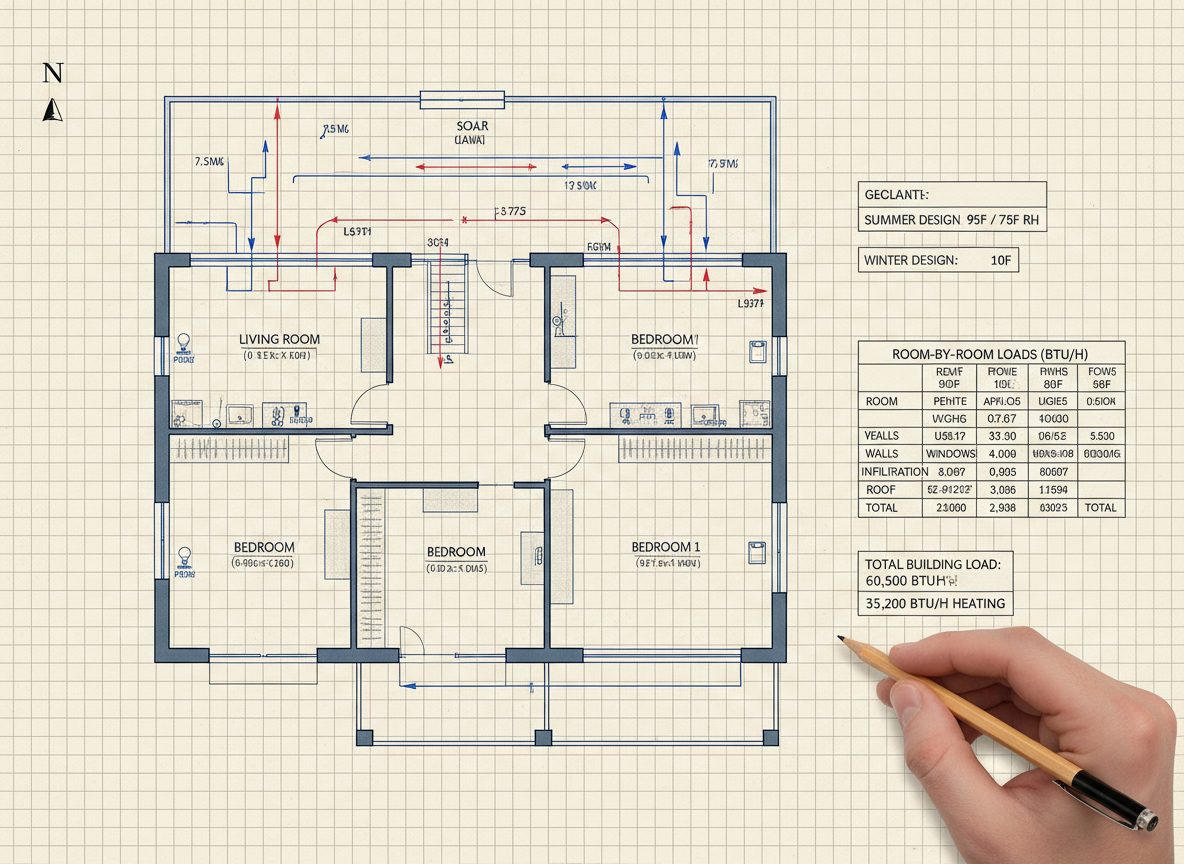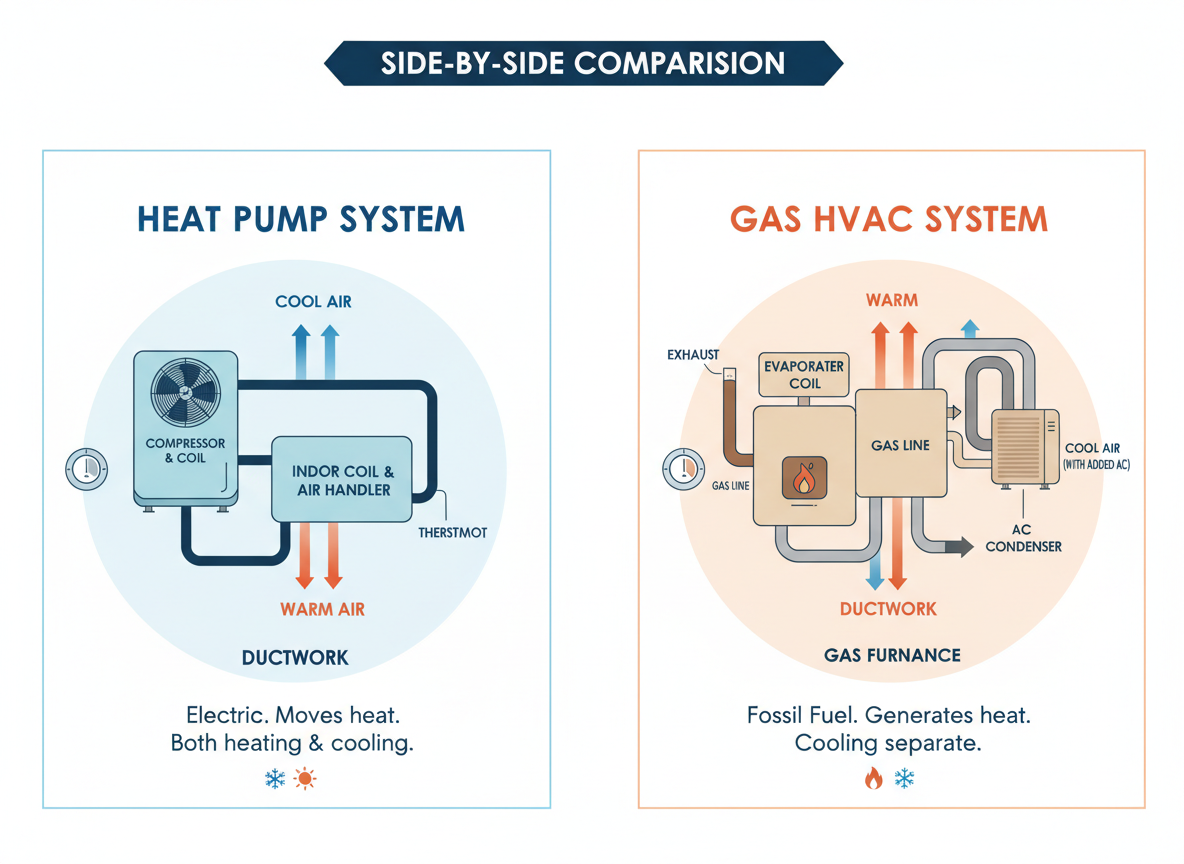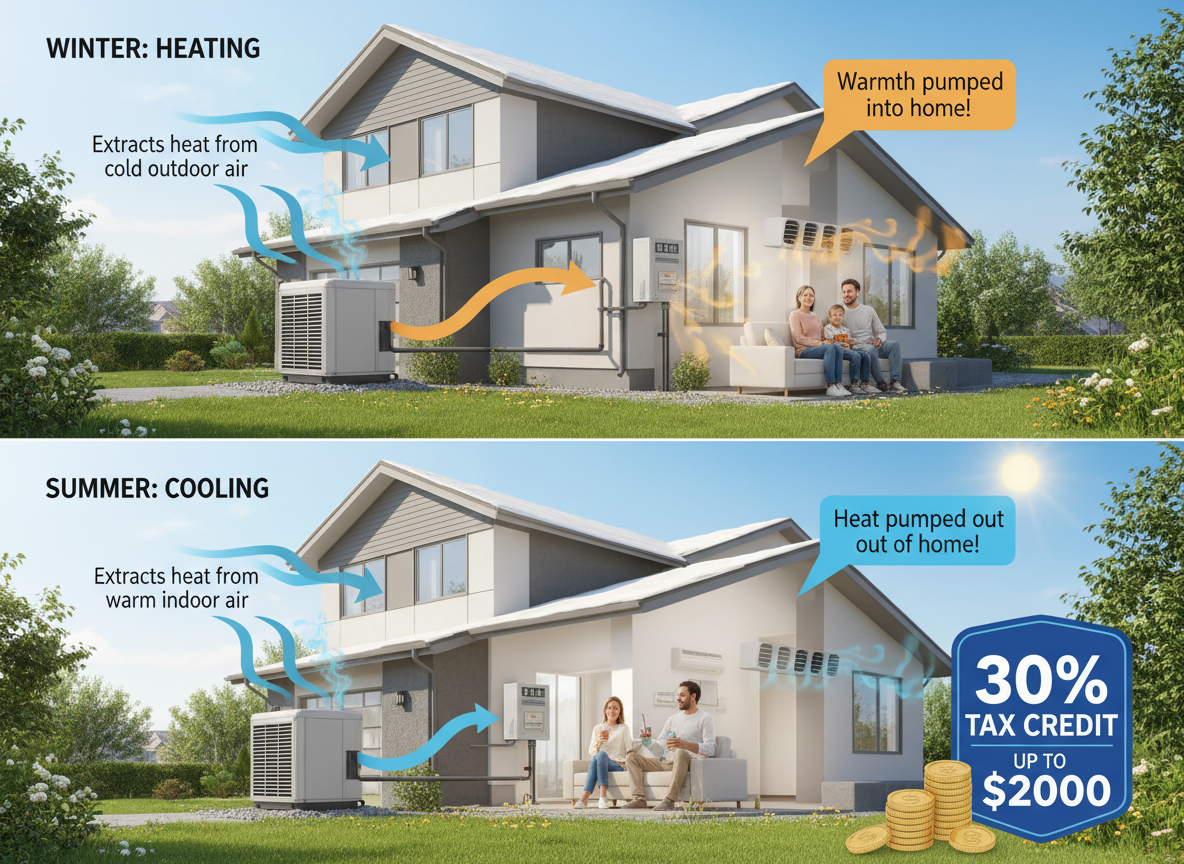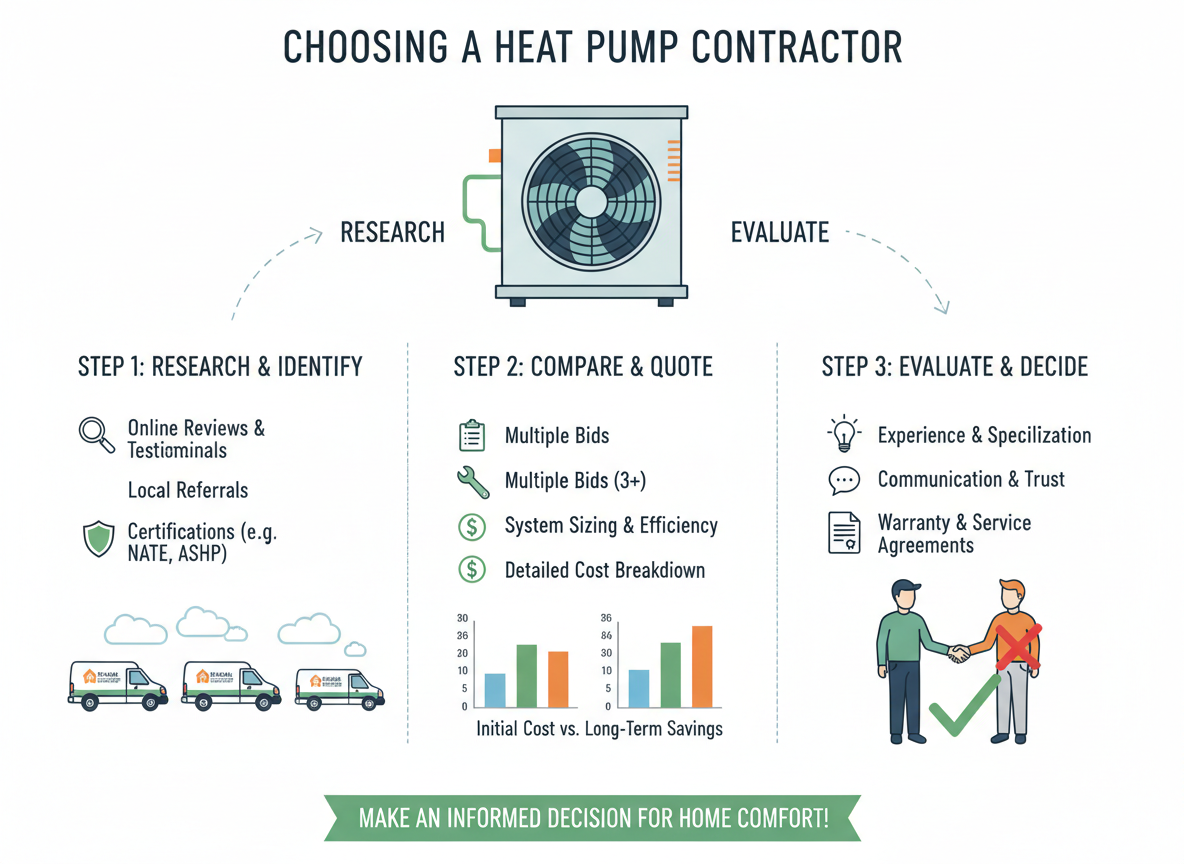
The acronym HVAC stands for Heating, Ventilating and Air Conditioning. In other words, HVAC equipment includes heating, ventilating and cooling or air conditioning equipment. It is an integrated system with the ability to carry out these various functions and most often than not be able to be controlled by one thermostat or control.
HVAC systems heat and cool both residential and commercial buildings by the process of moving air between indoor and outdoor areas. A properly designed and operating system is able to provide adequate temperature control and indoor comfort. They also help with indoor air quality and comfortable humidity levels.
For most homeowners heating and cooling will account for almost half of all the energy usage in the home. It is important to have a properly operating HVAC system that will meet your needs that will not waste unnecessary energy.
How Does An HVAC System Work?
In a typical system each component may be separate. However, it is more common to see combined systems such as in a central heating and AC system that uses a single blower to circulate air by way of the duct system. They all however begin with ventilation a source of fresh air intake from outside or within the home.
Natural ventilation occurs when air moves in and out through windows, or other openings. This process is necessary to replenish oxygen and remove odors and excessive moisture. The V in HVAC refers to mechanical ventilation to move air in and out. Modern construction and energy efficiency improvements have led to homes that are far more tightly sealed. Therefore, ventilation has become an increasingly important component in residential HVAC systems.
Once the air has been brought indoors, the air handling component draws the air in through filters. The filters then remove dust, allergens and any other airborne particles. Next the air is then either heated or cooled.Once the air is at a comfortable temperature it is dispersed into the conditioned space. In a split system a duct system disperses the air into different parts of the home, but for other systems the air might be directed right into the space.
Split System

This type of system is split between two different main units to provide heating and cooling. These HVAC systems contain both an indoor and outdoor unit, both of which are easily recognizable. The cooling system, condenser, is outside and uses refrigerant, a compressor and coils to cool air and a fan to blow air out. The heating component of a split system also known as the furnace is typically located in the attic, closet or garage. The furnace uses gas to heat your home which is dispersed by the fan or evaporator coil to circulate the air. This type of system that uses a thermostat to manage the temperature and is able to keep your space at your desired, comfortable temperature. A split HVAC system can also be equipped with a purifier, UV lamp or humidifier to assist with indoor air quality and keep the home comfortable.
Packaged Unit

A packaged system contains both heating and air unit and is responsible for both cooling and heating. They are usually located on a roof or near the foundation. This type of HVAC system is also able to be very efficient and can be easily maintained. The heat can either be generated with electricity or can combine gas and electric. A packaged system is a good option for homes or offices with limited space.
Hybrid Heat Pump HVAC System
A hybrid heat pump HVAC System is similar to a split system but with a few notable differences. Heat pumps are air conditioners that can also work in reverse to efficiently heat your home. These type of HVAC systems are becoming increasingly popular because they can reduce energy costs through their hybrid heating system. The homeowner is able to decide how to heat their home by switching between gas power to electric which is more efficient and quieter. A hybrid heat pump system uses a duct system, a traditional thermostat, but has the added option to conserve energy and lower energy costs.
Ductless Mini Split System
A ductless HVAC system is also known as a mini split system. These type of HVAC systems are made up of individual units in each room to provide independent control. They are a good solution for when a space is not compatible with a ducted system or can be used to complement existing HVAC system. The individual units are mounted on indoor walls, and are attached to a compressor outdoors. A ductless mini split HVAC system is perfect for use in new additions to homes, or even garages. This is because they are easier to install and allow for independent control of the unit. In the case of businesses such as hotels, it is beneficial to allow tenants to control individual temperatures and conditions. They also provide energy efficiency savings since it keeps unused rooms from wasting energy.
There is no doubt that air conditioning systems are a wonderful invention. They keep us at a comfortable temperature, even on the hottest days of summer or coldest winter day if working properly. Call us today at (818) 341-3406 or contact us online to see how we can help you determine the best system for your needs. To learn more about services our company offers, please visit our homepage.
What Does HVAC Stand For? What Are The Different HVAC System Types? Related Posts:






















.png)














